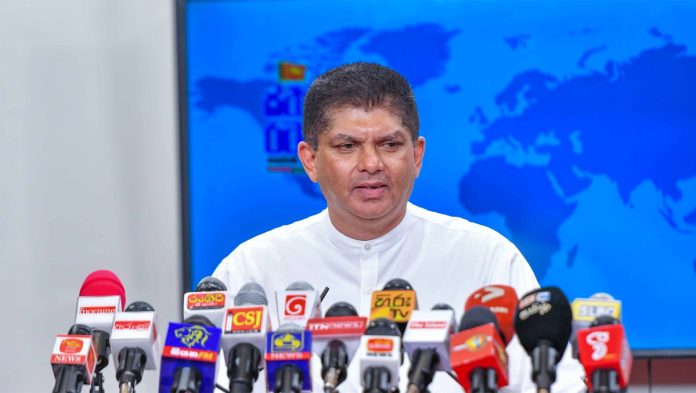[ad_1]
ECONOMYNEXT – Sri Lanka’s privatized plantations would be taken back by the state if a wage hike order is not carried out, State Minister of Plantations Industries Lohan Ratwatte said.
Sri Lanka suddenly gazetted a hike in plantation worker daily wage to 1,700 rupees ahead of May Day rallies following the path of ousted President Gotabaya Rajapaksa who suddenly hiked wages to 1,000 rupees a day in March 2021.
Before unions exited collective agreements and the coercive power of the state came through gazette plantation workers also used to bargain with the privatized companies through collective agreements.
The Regional Plantations Companies (RPCs) will have to give the wage hike or face being taken back.
Or Else
“There is no going back for the private sector,” Minister Ratwatte told reporters in Colombo Thursday.
“It’s gazetted. Either they do it or we take RPCs back.
“I think the President has given a good message to the country.”
Management of state plantations were privatized under President Ranasinghe Premadasa as they caused hundreds of millions of rupees each month to the state through salary supplements.
Long term ownership was given to private citizens in the 1990s through leases under President Chandrika Kumaratunga.
Once Privatized, Once Expropriated
The plantations were once expropriated from foreign and local investors after independence from British rule, in a move that has been identified as an early step in the country’s post-independence decline.
The President J R Jayewardena put a constitutional guarantee against expropriation as foreign direct investment was sought again following the success seen in countries like Singapore in drawing foreign investment to its Jurong Industrial park.
Singapore however had monetary stability through a currency board, while Sri Lanka’s economic buraucrated depreciated the currency especially after the IMF’s Second Amendment to its Articles, triggering strikes and social unrest.
Despite the constitutional guarantee, Sri Lanka once again expropriated companies in 2011, and missed a chance to win the confidence of foreign investors after a 30-year civil war ended, critics say.
Monetary Instability
The current wage hike from politicians representing plantation workers comes after the latest collapse of the rupee after macro-economists printed money to target ‘potential output’, again after the IMF gave technical assistance to the central bank on how to calculate it.
From 2020 macro-economist printed money and depreciated the rupee from 180 to 370 to the US dollar.
The central bank has since allowed the rupee to appreciate to 296 levels to the US dollar.
According to the gazette notice, plantation workers will have to be paid 1350 rupees a day, there will be a ‘daily special allowance’ of 350 rupees and an over kilogram rate of 80 rupees a day.
Objections to the order can be made to the Commissioner General of Labour until 12.00 noon on 15 May 2024.
The 70 percent apparent wage hike comes after a 60 percent inflation of the currency (from 184 to 296 to the dollar) against the US dollar.
Tea prices in rupee terms have started to come down as the rupee strengthened and the US also tightened policy, pulling back commodity prices. (Colombo/May02/2024)
[ad_2]
Source link


